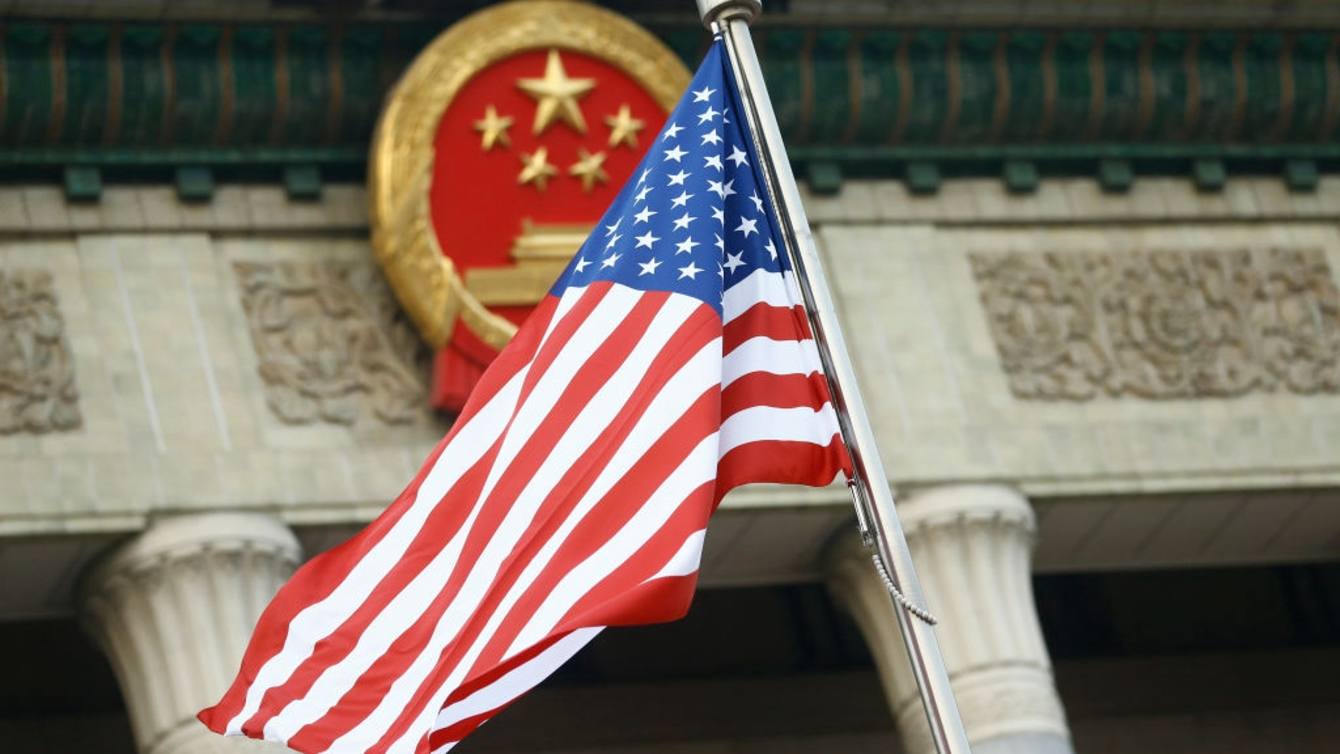Media Report

- The Washington Post reports, "The United States and China resume talks Tuesday aimed at ending a fight over Beijing's technology ambitions ahead of a deadline for a massive U.S. tariff hike. The White House said that meetings between mid-level delegations will begin in Washington following talks last week in Beijing that U.S. Trade Representative Robert Lighthizer said 'made headway' on key issues. On Thursday, Lighthizer will lead higher level talks, joined by Treasury Secretary Steven Mnuchin, Secretary of Commerce Wilbur Ross, White House economic adviser Larry Kudlow and trade adviser Peter Navarro. Leading the Chinese team will be Vice Premier Liu He, according to the Xinhua news agency. Business groups and economists saw Friday's surprise announcement of further talks this week as a sign that the two counties were making progress."
- CNN reports, "Huawei's founder is striking a defiant tone in the face of American attempts to curb the Chinese tech giant's international reach and prosecute his daughter. 'There's no way the US can crush us,' Ren Zhengfei said in an interview with the BBC that aired Tuesday. 'The world needs Huawei because we are more advanced.' Huawei, the world's largest telecommunications equipment maker, is battling a US-led campaign to persuade American allies to shut the company's technology out of super-fast 5G networks. Australia and New Zealand have already restricted mobile operators from using Huawei gear for 5G. The United Kingdom, Germany and others are considering whether to clamp down as well. The US government argues Huawei's products could be exploited by Chinese intelligence services for spying — a claim the company has repeatedly denied."
- The New York Time reports, "The Chinese dissident artist Ai Weiwei was under house arrest in Beijing when he was invited to remotely direct a segment for 'Berlin, I Love You,' an anthology film set in the German capital. The segment portrayed the separation of a family and featured his 5-year-old son, Ai Lao, who lived in Germany.'It's sweet and has some sadness,' Mr. Ai said about his segment, which he directed in 2015. 'Not politically sensitive at all.'But in the final version of the film, which was released in the United States this month, Mr. Ai's contribution was nowhere to be found. Mr. Ai said the producers told him they had decided to cut his segment after investors, distributors and other partners raised concerns about the artist's political sensitivity in China. 'When I found out, I was very angry,' Mr. Ai said. 'It was frustrating to see Western creators and institutions collaborating with Chinese censorship in such an obvious way.'"
Calendar
- 2019-02-18 UK spies think they can handle Huawei in 5G networks. The US doesn't agree
- 2019-02-17 China's new trade offer is better than a tariff war
- 2019-02-15 China and US will continue high-stakes trade talks in Washington next week
- 2019-02-14 Top U.S. trade envoys to meet China's Xi, no decision on deadline extension
- 2019-02-13 Administration Readies Order to Keep China Out of Wireless Networks
- 2019-02-12 China, U.S. Seek to Narrow Gap on Trade for Trump, Xi to Close at a Summit
- 2019-02-11 Trump officials considering Mar-a-Lago for next meeting with China's Xi: report
- 2019-02-10 White House discussing possible trade summit with China at Mar-a-Lago: report
- 2019-02-01 Trump plans to meet Chinese leader Xi Jinping to resolve trade dispute
- 2019-01-31 Trump Says No Final China Trade Deal Until He Meets With Xi
News
- The Washington Post US, China resume trade talks in Washington ahead of deadline
- CNN Huawei founder Ren Zhengfei: The US 'cannot crush us'
- The New York Times Dissident Artist Ai Weiwei Is Cut From Film; Producer Cites 'Fear of China'
- The Wall Street Journal Alibaba Takes Stake in Bank Backed by Tencent
- CNN Former New Zealand leader: 'We need to learn to listen to China'
- Bloomberg U.K. Security Watchdog Said to Conclude No Huawei 5G Ban Needed
- CNBC More and more signs point to slower spending in China. Analysts say not to worry
- The Washington Post China accuses US of trying to block its tech development
- CNBC Alibaba is reportedly the force behind hit Chinese propaganda app
- Bloomberg Trump's Huawei Threats Dismissed in Italian Pivot Toward China
- The Wall Street Journal 5G Is a Winner for Chinese Companies—at Least at Home
- Bloomberg Malaysia Nears Deal With China to Revive Scrapped Rail Project
- Reuters Tanzanian court sentences Chinese 'Ivory Queen' to 15 years for smuggling
- The Washington Post China's Forbidden City to open to the general public at night for the first time in 94 years
- Reuters HSBC warns on China, UK slowdowns as 2018 profit disappoints
Commentary
- The Washington Post China's Xi Jinping is growing impatient with Taiwan, adding to tensions with U.S.
- Forbes China Trade War Update: A Trickle Of Soybean, Oil Exports
- CNBC It's looking like a US-China trade deal is near — and Beijing will get everything it wanted
- Financial Times China will not surpass America any time soon
- National Interest China's Logistics Modernization is Changing the Pacific Military Balance
- Bloomberg China's Silicon Valley Blueprint Has Plenty of Holes
